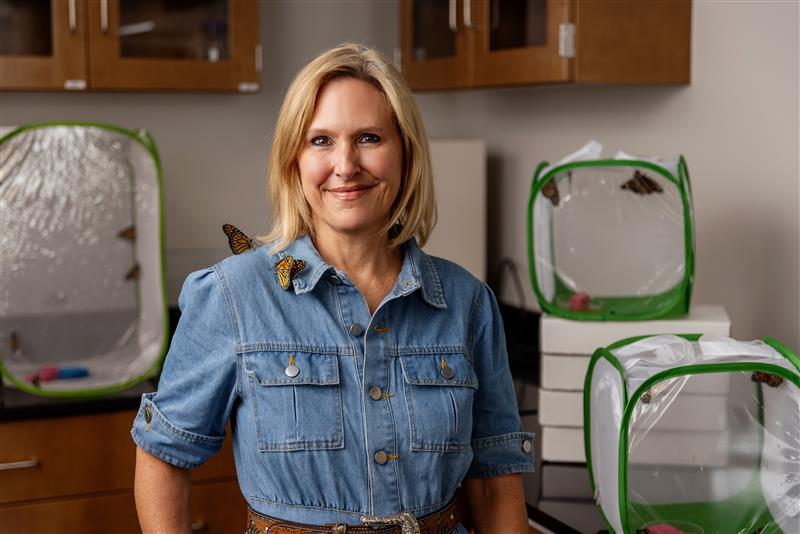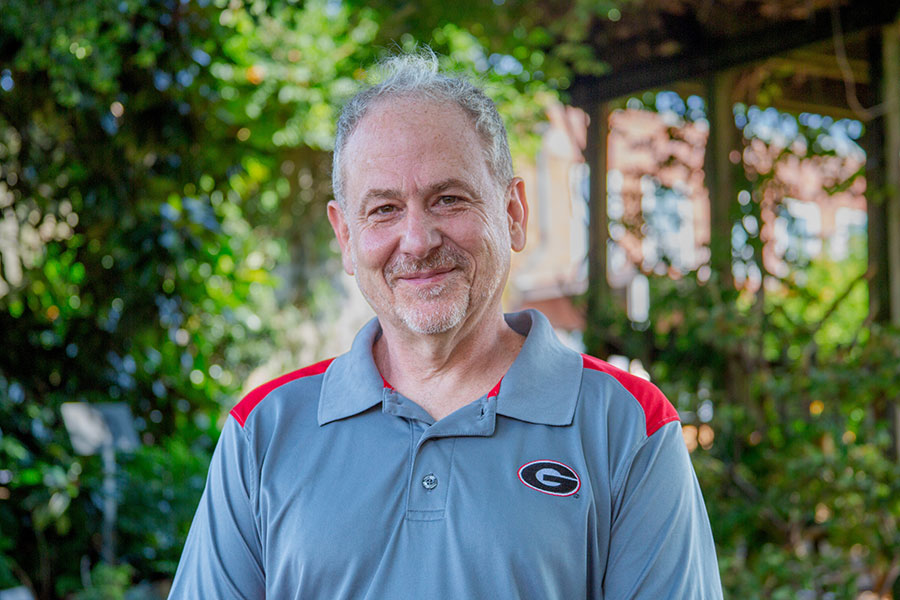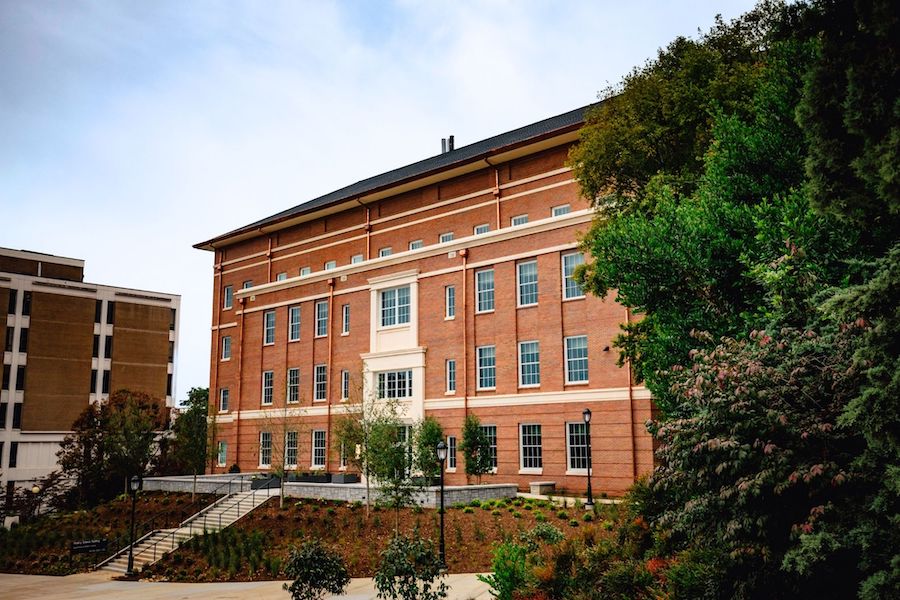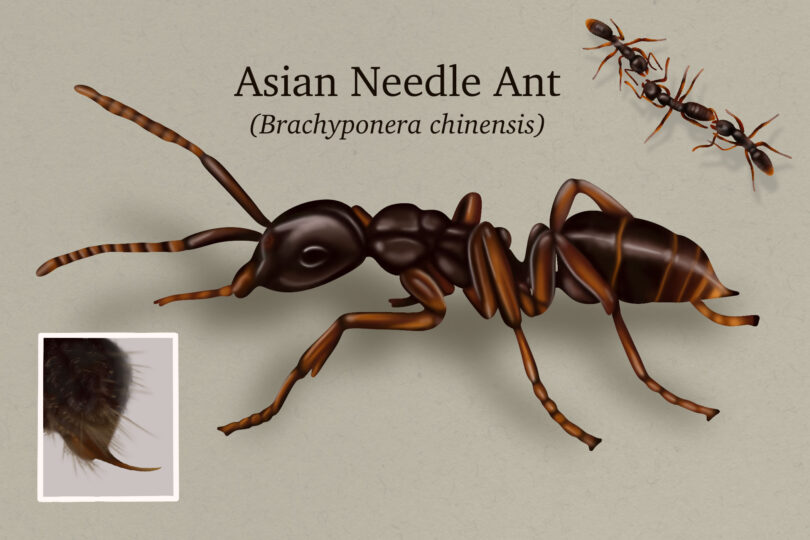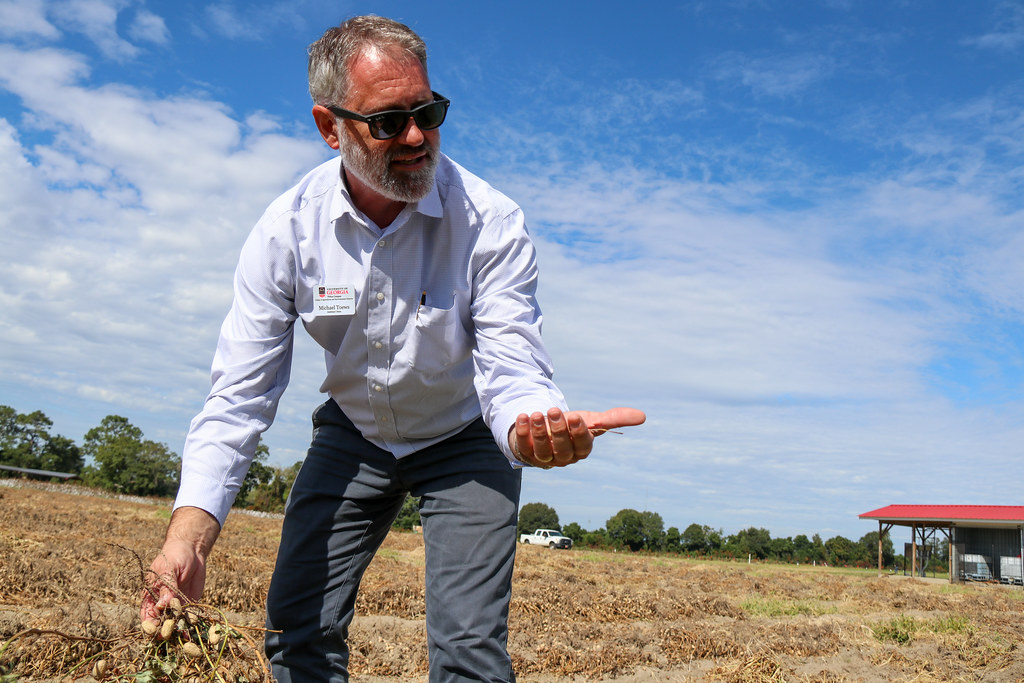
When Miriam Edelkind-Vealey applied for a summer role at a University of Georgia pollinator biodiversity lab in 2020, the junior undergrad didn’t quite know what to expect.
“It looked like a cool opportunity to study bees. I didn't really know what that entailed, but it was a wonderful interview, you know?” Edelkind-Vealy said. “It was one of those interviews where it felt like a conversation, not like you were being interviewed for a job.”
After being told she got the position, Edelkind-Vealy didn’t hear anything for a few weeks. It was only then that she learned a collaborator on the project, second-year master’s degree student Amy Joy Janvier, had passed away.
“Honestly, I wouldn't be in this field today if it weren't for Amy, which is weird — to have that kind of relationship with someone you've only met once on Zoom,” she said.
After Janvier’s passing, Edelkind-Vealy processed all of Janvier’s samples — nearly three carloads of pollinators. Now a doctoral candidate in the Department of Entomology at the UGA College of Agricultural and Environmental Sciences (CAES), Edelkind-Vealy is studying the conservation value of forests, trying to learn what local characteristics influence bee diversity.
“Her master's project was quite a cool initiative. She was looking at the effects of land use on bee diversity in residential landscapes,” Edelkind-Vealy said. “That project is what inspired my Ph.D.”
A dynamo from day one
Even as a child, Janvier was a go-getter — a trait that served her well later in life as a researcher, said her mom, Ali Janvier. Teachers used phrases like “organized” and “strong work ethic” to describe a child who not only started neighborhood lemonade stands but recruited other children to work for her.
Amy Janvier’s passion and drive resulted in good grades, scholarships and, finally, admission to UGA to major in ecology — a path that would enable her to support her greatest passion: caring for the environment.

“She was always very happy, full of energy. I had no idea until we had her celebration of life how many lives she touched,” Ali Janvier said. “She just loved people — she was just a really sweet, caring, loving person.”
Research dedicated to making the world a better place
After completing her undergraduate work in ecology and working for an environmental engineering company, Amy Janvier’s interest in the environment — and being out in the field — led her to pursue graduate studies in entomology at UGA.
“Amy was something of a force of nature. A serious student,” said Kris Braman, professor and head of the CAES Department of Entomology. “She was a commanding presence but also someone who embraced life. She was passionate about many things, and she became focused on pollinator protection.”
She had a big personality, Braman added, and was dedicated to making the world a better place.
“Her work lives; she has a living legacy,” Braman said, referring to Amy Janvier’s research on how mixed land use — such as developments interspersed with forest patches — improves bee diversity and is leading to new solutions for bee conservation. The research led to an invite for Braman to take the stage for TEDx Talks, something she said she would never have accepted without thinking of Amy Janvier and her passion for pollinators.
After Amy Janvier’s passing during the data-collection phase of the project, Braman, Edelkind-Vealy and research collaborator Clayton Traylor chose to honor her by listing her as first author.
“Amy was one of those people who never knew a stranger, which is why she was so talented at outreach and was such a great spokesperson for insect conservation,” said Traylor, now a postdoctoral researcher at the Temple University College of Science and Technology. “Amy was really passionate about finding solutions that everyday people could be a part of, including investigating how people's landscaping could support pollinators.”
One of Traylor’s fondest memories of Amy Janvier was a trip they took to collect samples for their insect taxonomy class — one of the core experiences for entomology students at CAES.
The pair went up to Janvier’s family cabin in North Carolina to collect insects not found in Athens. She knew the area well and took Traylor hiking and blacklighting, using a UV light to attract nocturnal insects.
“I think we stayed up until 3 a.m. walking around and exploring the woods while waiting for the bugs to be attracted to our blacklight,” Traylor said. “They never came out in force — it was too cold, I believe — but we still had an excellent time.”
Honoring a commitment to undergraduate students and study abroad opportunities
In honor of Amy Janvier’s passion for travel — whether close to home or across the globe — Ali Janvier and her family have pledged $50,000 to establish the Amy Joy Janvier Study Abroad Scholarship Fund. An equal match from the Department of Entomology will bring the total endowment to $100,000, providing study-abroad scholarship support for junior or senior undergraduate entomology students.
“We want all our students to have a study abroad experience, to meet other cultures, to learn more than the details,” Braman said. “But these trips are expensive. Even with other sources of support, some students wouldn’t be able to afford the experience of their choice. This incredible gift will help support our students with these opportunities.”
Braman and Ali Janvier witnessed a study abroad trip to Costa Rica change Amy as both a researcher and an advocate for undergraduate study abroad experiences.
“I knew I wanted to do something; I felt in my heart she would really love the money to go to those experiences,” Ali Janvier said. “She enjoyed her travels so much — study abroad programs enable students to expand their knowledge while seeing and appreciating the world.”
“Just like Amy’s personality and impact were bigger than the narrow lane of her research, the study abroad opportunities help students grow and appreciate this big, old, beautiful world we live in,” Braman said. “Amy saw the world as a big, old, beautiful world.”
To contribute to the Amy Joy Janvier Study Abroad Scholarship Fund, visit gail.uga.edu.

